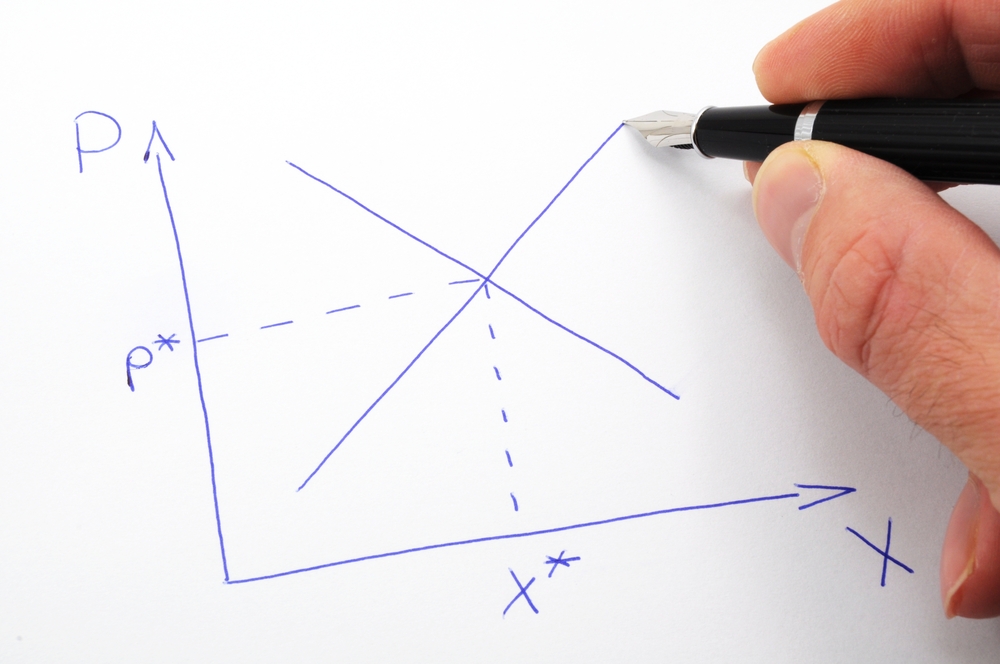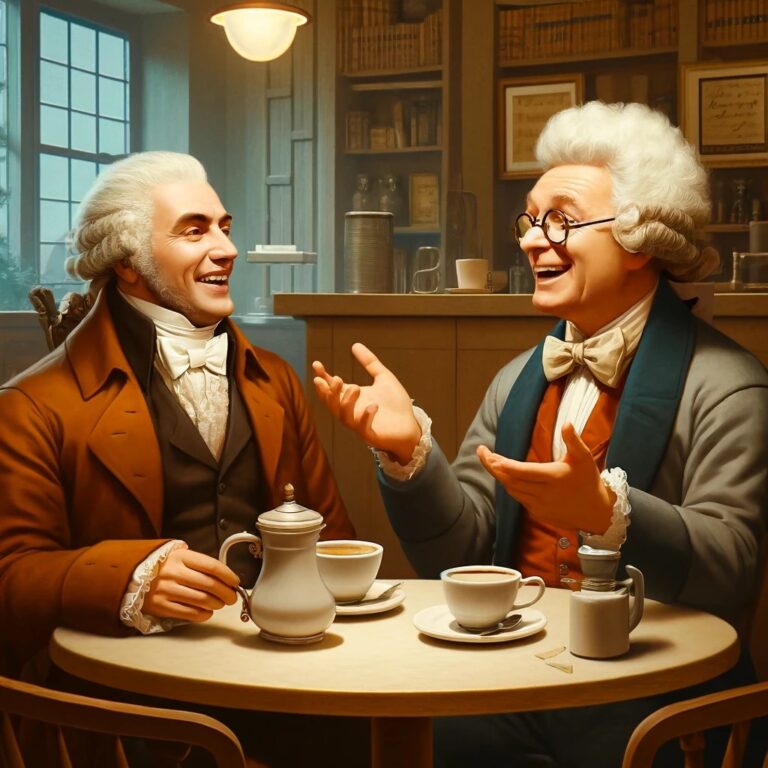Click-a-ty-clack, click-a-ty-clack. . ., click-a-ty-clack.
These were the sounds that regularly echoed through the second-floor hallway of Clemson University’s Sirrine Hall in the 1980s and before. The economists present on site at 10 a.m. could expect these sounds of metal on metal, carrying a clear message: “It’s coffee time!”

The sounds undoubtedly came from Professor Hugh Macaulay’s steel leg brace that he had worn since he was shot and wounded in France during the Second World War. He had proudly volunteered for the service.
The “clicks,” combined with Hugh’s knocking on office doors, would attract eight or more economists from the department for the fun of the day, a lively political debate at the campus cafe over the latest market control declaration from Washington. Our discussions usually began when we left Sirrine to make the three hundred meter hike to the “Canteen”, so called when the students at the University were all men and all cadets.
The life of Professor Hugh H. Macaulay, former Clemson University economics professor, would have celebrated its centennial today. Those of us who were his colleagues and friends celebrate his life as an economist and a moral force in the lives of all of us, as well as in the lives of his students. Hugh remains one of the “most unforgettable characters we’ve ever met”, to paraphrase one of the Reader’s Digest most popular series. He is also remembered as one of the profession’s most ardent defenders of markets, always ready to criticize proposals to constrain the market process.
Professor Macaulay died on October 5, 2005 at the age of 81 from kidney cancer.
* * * * *
Hugh always wore a bow tie… Always! And they were made by his wife Frances – or rather “Pinky” to anyone who knew the Macaulays. She was the love of Hugh’s life, his partner, his colleague and his soul mate. She made the bow ties from old ties. In the Macaulay household, nothing was wasted.
Hugh had his own dress code. Some time ago it might have been called “Sunday meeting attire.” His hair was closely cut. His face, lively. His dark eyes danced as he talked and laughed with the others. If one did not know the meaning of Victorian manners of speech and conduct before, one would know it after spending time with Hugh.
The style of the day meant nothing to him. Presenting an appropriate role model to his students meant everything. In 35 years of observing him closely, including on occasions that might have tested Job’s patience, I can tell you that Hugh never uttered a word that would not have managed to be retained by My Weekly Reader.
* * * * *
Hugh Macaulay knew well and followed the words of Adam Smith found in his Theory of moral sentiments: “You have to think a lot about others and a little about yourself. » He told me at the beginning of my career, when I still had not submitted my doctorate. “Bruce,” he said, “everyone you meet, even the janitor, will know things you don’t. We must treat them all with great respect.
Hugh had a keen intellect, an unsatisfied hunger for knowledge and opportunities to engage in conversation about ideas. But there was a set of ideas that mattered above all: Economy. In this regard, Hugh had, in the words of JM Clark, “an irrational passion for impartial rationality.”
Hugh was an economist at heart. Economics was in his DNA. And Hugh’s economy wasn’t just any old economy either. It was Adam Smith’s economics of markets, price theory, commerce and Monetary Policy. It was what we in the business call the religion of yesteryear. Hugh was an unabashed lover of market competition and individual freedom. No, more than a lover, he was an evangelist.
And has he always been good. Whenever I had difficulty with an international financial problem, which was quite often, I turned to Hugh. He would begin stating the principles, then move on to application, and before you knew it the answer would be clearly revealed, sprinkled with Macaulay’s well-known wit.
Going for coffee with Hugh was great fun and could be hilarious, but coffee chats were serious business. Always, always, Hugh brought a pen and a notepad with him. If no one else asked a question, Hugh would ask his own, then draw supply and demand curves. Our discussions could be lively but always good-natured and accompanied by laughter. We all learned from the master and tried to imitate him.

Those who enjoyed Hugh’s company during our book club discussions knew what to expect if someone suggested that a government solution to an economic problem would be more effective than markets. Hugh asked in a disappointed tone, “Didn’t you listen?” And to make sure we remembered, he would orate, often quoting his favorite authorities, starting with Adam Smith, going through Milton Friedmanthen to Ronald Coaseand finally ending with Will and Arial Durant integrating their works into fully integrated classical liberal thought.
* * * * *
Hugh was an economist, but not only that. Deep down, Hugh was a teacher. A research teacher. A teacher of life. He was born to be in class…and he knew it.
His students? They were the joy of his life. His door was always open…, just like his house. The number of times Hugh and Pinky welcomed students into their homes was legion, and although he was a demanding student, he left his students captivated by his lessons and his thoughtfulness in allowing them to understand why and how he thought. as he did. . Naturally, a number of his students left his classes to say with conviction, “I would rather take another course from Macaulay and get a D than take a course taught by someone else and get an A.”
For many, Hugh was the one who set them on a new path, writing detailed, personal letters nominating them for higher education or employment, and who later left congratulatory notes when they were honored for their work. Long after Hugh’s retirement in 1980, his colleagues at Clemson were often asked, “And how is Professor Macaulay?”
In the words of a former student of Hugh’s: “You know, there is really no need today to speak well of Professor Hugh Macaulay to those who followed in his footsteps and were helped by the time that he devoted himself to them and their duties. . His goodness was evident in the way he lived his life and the way he treated others with respect and courtesy. At the same time, those of us who knew him feel compelled to announce forcefully on this day of celebration that every economics department needs a Hugh Macaulay, someone who is committed to words and deeds in support of the essential wisdom that Adam Smith expounded in both cases. its interrelated masterpieces, The wealth of nations, And The theory of moral sentiments.
* * * * *
I stopped by to see Hugh in the hospital and in his final days, even hours. Still sedated following the operation, Hugh did not appear fully awake. Despite this, Pinky insisted that I come in and talk to him.
“Hugh,” I said, “I came to tell you that markets work.” This fully awakened him. “Thanks for telling me, Bruce,” he replied. “I thought that might be the case. Now that I know for sure, I can go on and die in peace. At this, he burst out with that famous Macaulay laugh. Pinky and I laughed too.
Hugh Macaulay was a wonderful human being.
Bruce Yandle is co-founder of the Clemson Institute for the Study of Capitalism
and Distinguished Professor Emeritus in the Department of Economics and Mercatus Center Distinguished Assistant Professor of Economics at George Mason University. He specializes in public choice, regulation and free market environmentalism.


